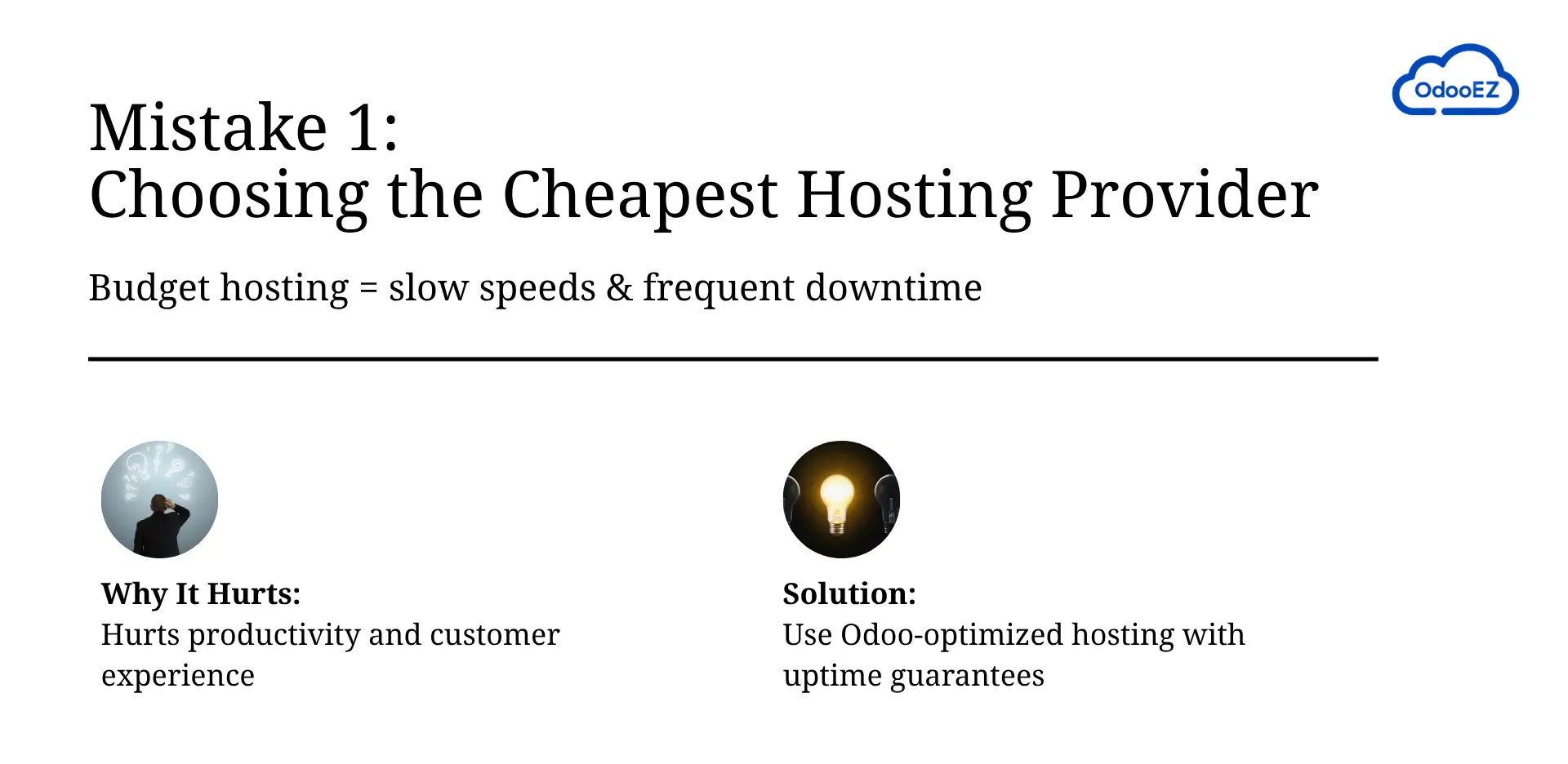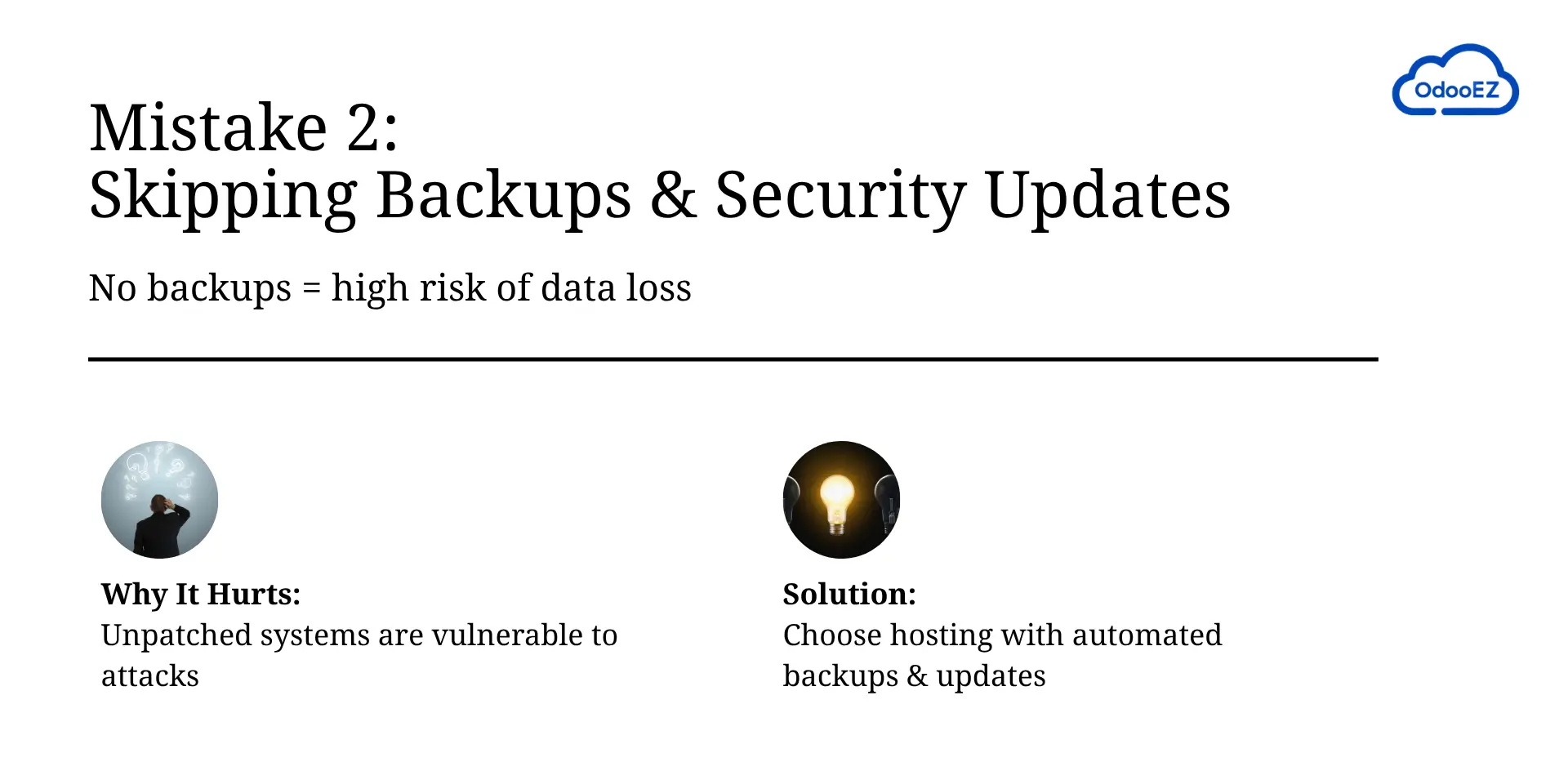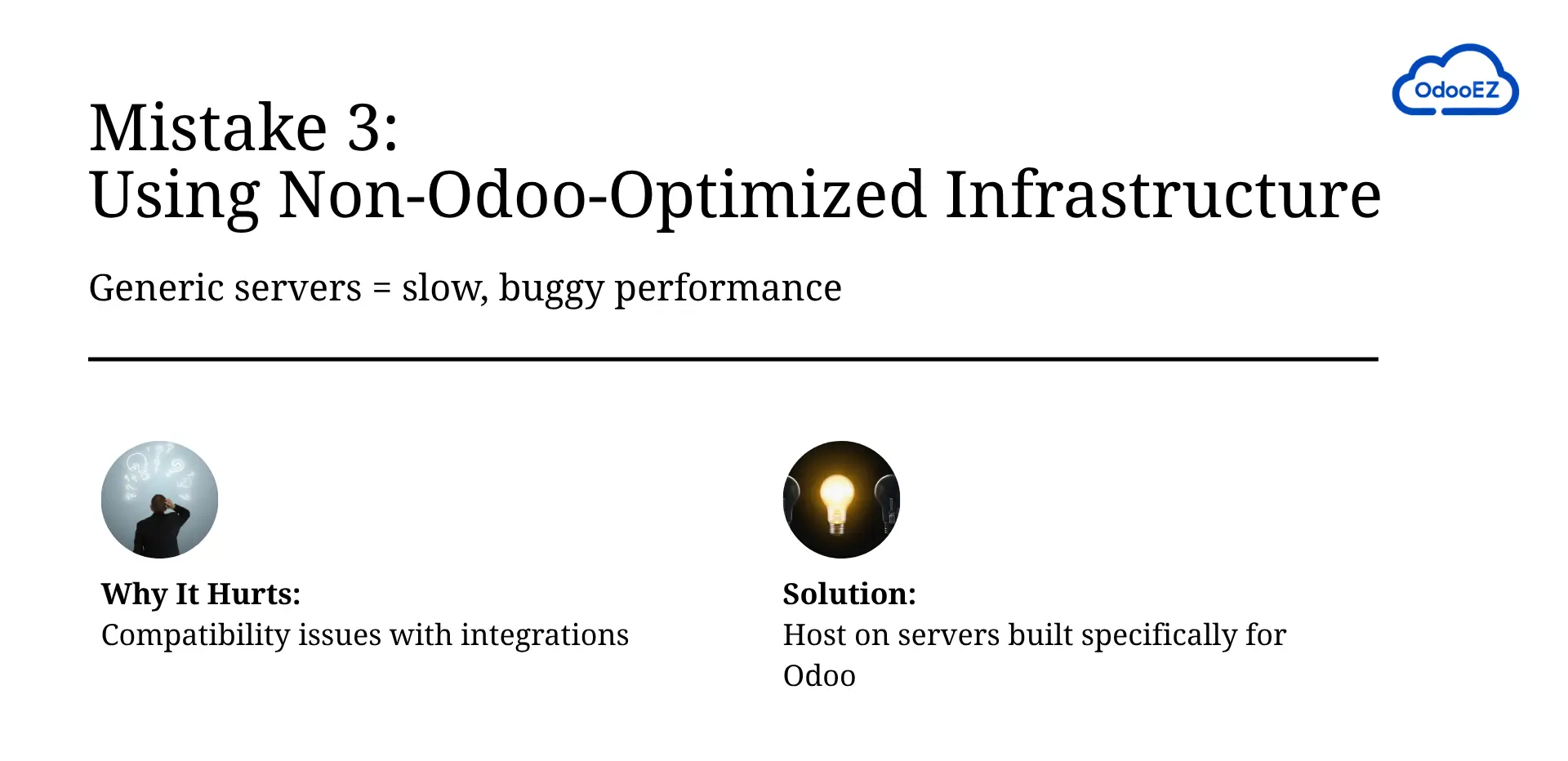Updated: October 2025
Is Your Odoo Hosting Secretly Holding Your Business Back?
Running your business on Odoo ERP can be a game-changer—but only if your hosting setup supports its performance, security, and scalability. While Odoo is a powerful platform, poor hosting choices can silently sabotage your system with slow load times, frequent bugs, and data vulnerabilities. These hidden issues don’t just frustrate users—they eat away at productivity, customer trust, and your bottom line.
Whether you're managing Odoo in-house or through a third-party provider, avoiding common Odoo hosting mistakes is crucial to maximizing ROI and keeping your operations running smoothly.
In this post, we’ll break down three critical Odoo hosting errors that could be costing you time and money—and show you exactly how to fix them.
Key Takeaways
- Don’t compromise on hosting quality - low-cost can mean high risk.
- Automate your backups and security - your business continuity depends on it.
- Use Odoo-optimized hosting - generic servers often underdeliver.
Mistake #1: Choosing the Cheapest Hosting Provider

The Problem:
Low-cost hosting often comes with hidden costs: poor uptime, slow site speed, limited scalability, and lack of specialized Odoo support.
Why It Hurts:
Slow Odoo performance leads to frustrated users, lower operational productivity, and lost revenue. Even worse, unexpected downtime can halt your business operations and impact customer satisfaction.
The Fix:
Invest in a reliable Odoo hosting provider with high uptime guarantees, fast performance, and Odoo-optimized infrastructure. Look for managed hosting plans that provide real-time support and system-level customization for Odoo.
Mistake #2: Ignoring Regular Backups and Security Updates

The Problem:
Failing to schedule automated backups and apply security patches puts your Odoo system at serious risk.
Why It Hurts:
A single data breach or system crash could cost thousands—or worse, cripple your operations. Without frequent backups, you might lose critical customer data, financial records, or project files permanently.
The Fix:
Choose a managed Odoo hosting solution that includes automated daily backups, real-time patching, and vulnerability scans. Secure hosting is not optional—it's your ERP's safety net.
Mistake #3: Hosting Odoo on Non-Odoo-Optimized Infrastructure

The Problem:
Generic cloud servers or DIY setups are not built for Odoo's performance requirements, which leads to compatibility issues and slow response times.
Why It Hurts:
You’ll face frequent bugs, integration failures, and performance bottlenecks that interrupt workflows and spike your support costs.
The Fix:
Use Odoo-optimized hosting with purpose-built infrastructure, including dedicated Odoo caching, database tuning, and elastic scalability. It ensures your ERP runs smoothly—even as your business grows.
Pro Tips
Offer value-add advice:
✅ Always ask providers if they offer daily backups and Odoo version support.
✅ Don’t just compare prices—compare SLA (Service Level Agreements), too.
Invest in High-Performance Odoo Hosting
Your ERP hosting shouldn’t be the weakest link in your tech stack. By avoiding these critical Odoo hosting mistakes, you protect your business from downtime, data loss, and long-term inefficiencies.
Make the switch to optimized, secure, and scalable Odoo hosting—because your ERP system deserves more than bargain-bin performance.